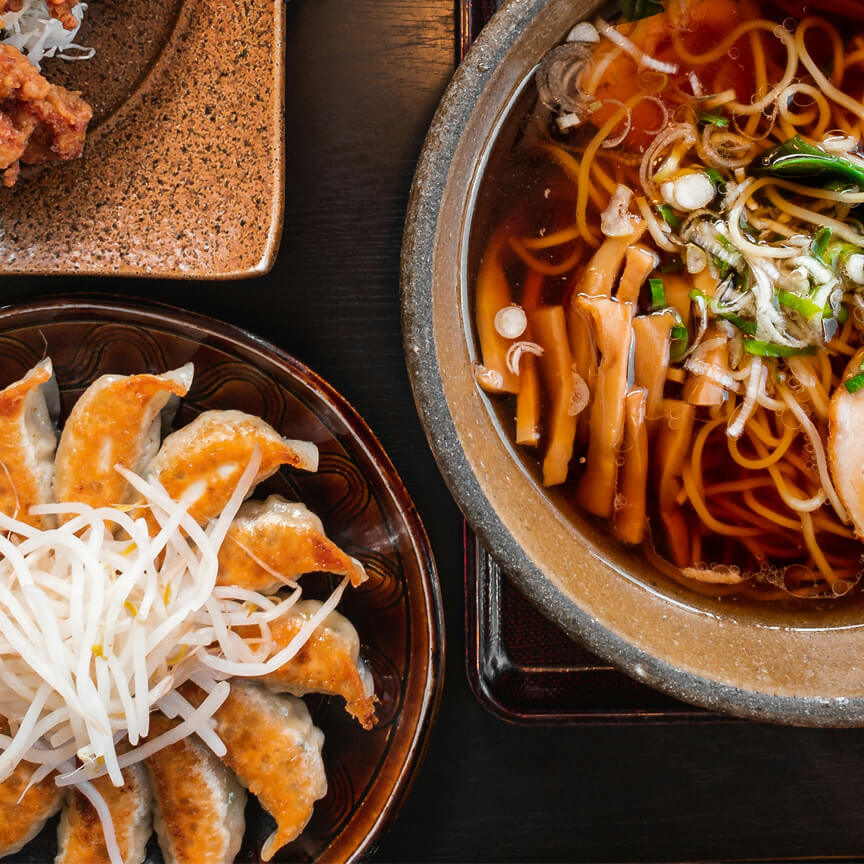
Professional tailoring using Japanese techniques.
5 days
Are you interested in this course?
Day 1
Theory and history of gyoza
– The origins of gyoza and gyoza-related ideologies
Traditional and modern utensils
Choosing the right flour
Presentation and choice of flours
Introduction to raw materials sourcing
Flour presentation
Making the Gyoza dough and shaping the dough discs by hand
Preparing a classic stuffing
Discovering the finished product
Tasting of Gyoza and other dumplings
Manual assembly of Gyoza
Cooking Gyoza
Day 2
Self-guided Gyoza making
Variations on fillings and pasta to add variety to your menu
Making your restaurant production profitable
– Use machines to make preparation easier
– Adapting recipes
– Organising your production
– Freezing your production
Evaluation
Day 3
Theory and history of ramen
– The origins and ideologies of ramen
– The different varieties of ramen: presentation of homemade and prepared noodles, tares, broths and fillings
Presentation of the utensils required for preparation
Organisation and optimisation of preparation
Preparing homemade broths :
– Chicken broth
– Vegetable stock
– Fish broth
Making Tare with soy sauce and miso
Making the toppings
Day 4
Presentation of the utensils required for the presentation
Chopsticks, bowls, ramen spoons
Preparing homemade noodles
Making ramen (pork, fish, seafood, vegetarian) with soy sauce
Making miso-based ramen (pork, fish, seafood, vegetarian)
Tasting
Preparing ramen on your own
Day 5
Practical and theoretical assessment
Feedback and tasting
Theory: discovering different types of hot and cold ramen
Creations and personalised creations
Prerequisites :
No, this course is accessible to beginners.
Targets :
Anyone wishing to diversify their menu (food truck, restaurant, dark-kitchen, etc.) and learn new culinary techniques.
You can register for the course using the form available on the website or by e-mail.
It is possible to register up to 15 days before the start of the course.
Theoretical lessons are based on an illustrated presentation (a copy of the presentation is given to each participant).
Practical lessons take place in the teaching kitchen.
Final practical test.
Diploma at the end of the course.
Our premises are accessible to people with disabilities, but we recommend that you contact us so that we can welcome you in the best possible conditions.
Contact and disability officer :
Camille Baraton
Tel: +33 5 54 54 12 18
Mail: camille@sushi-robots.eu